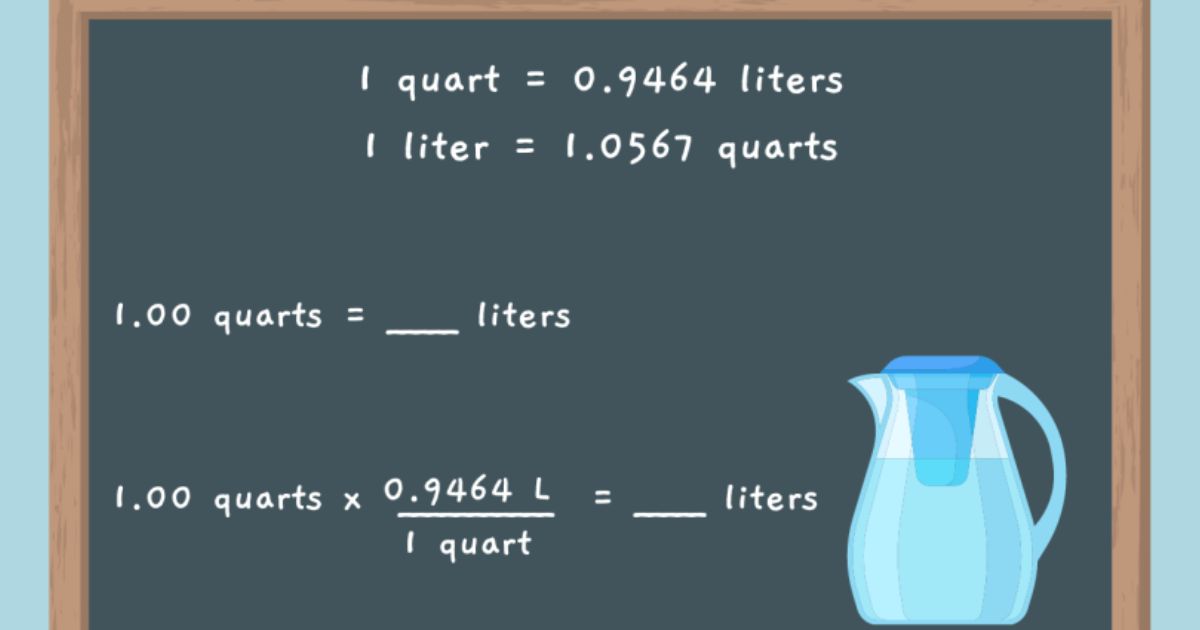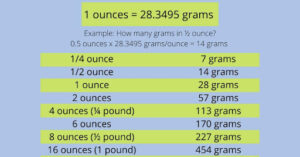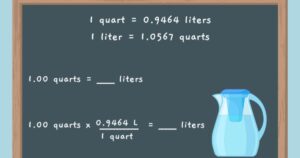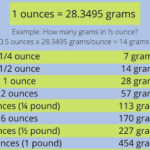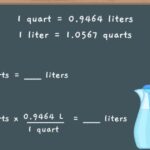Two succinct definitions for converting liters to quarts are as follows:
Conversion from liters to quarts: 1 liter is equivalent to approximately 1.0567 quarts
To get the equivalent volume in quarts, multiply the volume in liters by 1.06 in the conversion process.
When dealing with volume measurements, one common task is to convert between liters and quarts. The metric unit of volume, the liter, can be easily converted to the imperial unit, the quart. It is simple to convert volumes from liters to quarts and vice versa using a simple conversion factor of approximately 1.06.
Understanding Volume Measurement
Understanding volume measurement is necessary for a variety of common activities, including construction and cooking. The quantity of space occupied by a substance or object in three-dimensional space is referred to as volume. It’s generally estimated in units like liters, quarts, gallons, and cubic meters.
Conversions make it simple to translate between the various volumes that each unit represents. For example, while liters are regularly utilized in the decimal standard for measuring, quarts and gallons are more pervasive in the royal framework. Having the option to appreciate volume estimation permits people to precisely divide fixings in recipes, ascertain the limit of holders, and grasp spatial ideas in fields like designing and engineering.
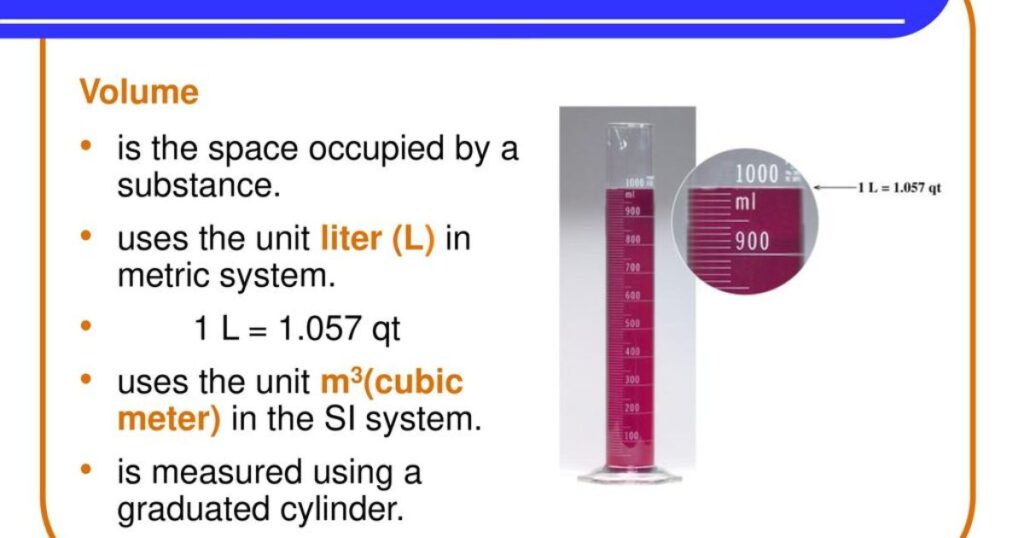
Explaining the Concept of Volume
The quantity of space occupied by a three-dimensional object or substance is represented by the concept of volume, which is fundamental to both geometry and physics. Depending on the context, it is measured in cubic units such as cubic meters, cubic centimeters, or liters.
Envision filling a compartment with water; the volume of water it can hold is its ability, estimated in liters or gallons. In geometry, a shape’s volume is determined by multiplying its height by the area of its base, or by using formulas specific to spheres, cylinders, or cubes. From building and bridge design to measuring quantities in recipes and analyzing fluid displacement in engineering, understanding volume is essential in all fields.
Differences Between Liters and Quarts
Although both liters and quarts are units of volume, their systems of measurement are distinct: liters are a part of the metric system, while quarts are a part of the imperial system.
Liters: Liters are a unit of volume in the decimal standard, ordinarily utilized overall for estimating fluids and gases. 1,000 cubic centimeters, or 0.001 cubic meters, are represented by a liter. It is frequently denoted by the letter “l” or “L.”
Quarts: Quarts are a volume unit in the imperial system that are primarily utilized in the United States and a few other nations. 0.946 liters are roughly equivalent to one quart. It is used to measure liquids, especially in recipes and cooking, and it has four cups or two pints
Conversion Factors
A numerical value used to convert between various units of measurement is called a conversion factor. It lets you express the same amount in multiple units. For instance, the change factor among meters and centimeters is 100, since there are 100 centimeters in a single meter. The relationship that exists between the two units that are being converted is typically the source of conversion factors.
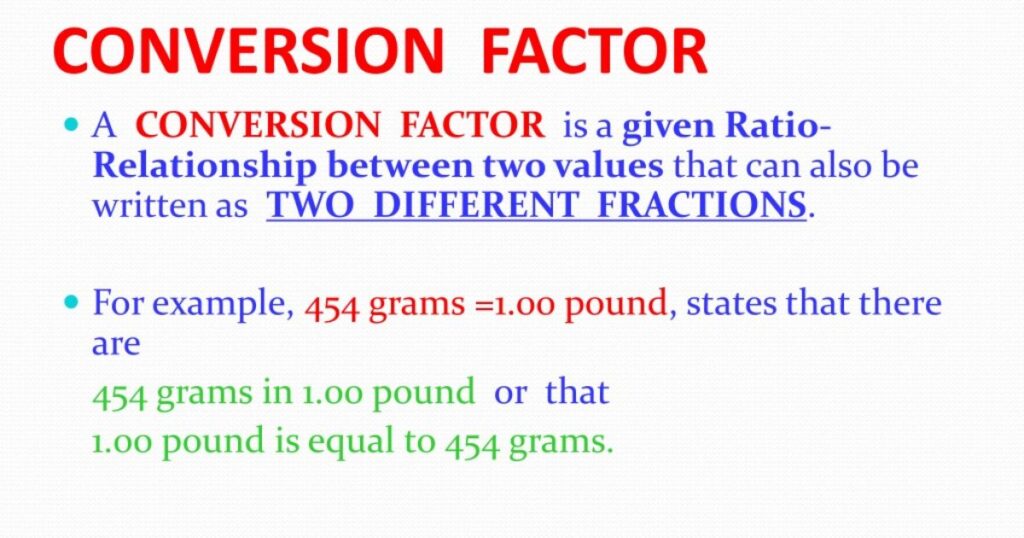
In summary, conversion factors are essential tools for converting between different units of measurement accurately and efficiently.
Relationship Between Liters and Quarts
The connection among liters and quarts includes a transformation factor that permits you to change over between these two units of volume estimation. Specifically:
1 liter is around equivalent to 1.06 quarts. This indicates that you can approximate multiply the volume in liters by 1.06 to convert from liters to quarts.
To convert from quarts to liters, on the other hand, use the same conversion factor to divide the volume in quarts. The metric system (liters) and the imperial system (quarts) can communicate and measure with ease when this relationship is understood.
Mathematical Formula for Conversion
A conversion factor is used in the mathematical formula for converting volume from liters to quarts and vice versa. How does it work?
To convert from liters to quarts, use the following formula: Quarts = Liters 05668821Quarts = Liters
Liters are equal to 0.946352946 quarts.To accurately convert volume measurements between the two units, these formulas make use of the conversion factors between liters and quarts (1 liter = 1.05668821 quarts and 1 quart = 0.946352946 liters).
Conversion Methods
You can convert volume measurements between liters and quarts in the following ways: 1. Using the Conversion Factor for Multiplication or Division: As previously mentioned, the conversion factor (0.946 for quarts to liters and 1.06 for liters to quarts) can be used to convert between the two units. To get the equivalent volume in quarts or liters, simply divide the volume in quarts by 0.946 or multiply the volume in liters by 1.06.
Online converters: There are a lot of online calculators and tools for converting volume measurements between liters and quarts quickly and accurately. Essentially input the worth you need to change over and select the ideal units, and the converter will offer the changed over benefit
Calculation by Hand: If you would rather carry out the calculations by hand, you can make use of the mathematical formulas that were provided earlier. Duplicate the volume in liters by 1.05668821 to switch over completely to quarts, or duplicate the volume in quarts by 0.946352946 to change over completely to liters.
Pre-calculated values for converting between various units of measurement are provided by conversion tables. In a conversion table, you can look up the factor for converting liters to quarts or quarts to liters and use that information to make the change. Select the method that best meets your preferences and the level of precision necessary for your conversion.
Tips and Tricks
Here are a few hints and deceives to assist you with liter to quarts change:
Keep in Mind the Rough Conversion Factor: Despite the fact that the precise conversion factor is approximately 1.06, keeping in mind that one liter is approximately equivalent to 1.06 quarts can assist you in making quick estimates without the need for a calculator.
Round for Fast Approximations: When you want a speedy gauge, adjusting can be useful. You can get a good estimate by rounding to the nearest whole number because 1 liter is very close to 1 quart. 2 liters, for instance, correspond roughly to 2 quarts.
Use Multiples of the Conversion Factor: You can use multiples of the conversion factor when dealing with larger quantities. For example, to change 3 liters over completely to quarts, you can duplicate by 3 and afterward by 1.06. Similarly, you can multiply 5 by 1,06 to convert 5 liters to quarts.
Know Normal Changes: Remembering normal transformations can save time and exertion. Knowing, for instance, that one liter is roughly equivalent to 1.06 quarts and that four liters are roughly equivalent to 4.24 quarts can come in handy in everyday situations.
Double-check Your Calculation: When precision is important, always double-check your calculation. Even though estimation methods can be useful, accuracy is important in some situations, like precise cooking measurements or scientific experiments. You can make your conversions from liters to quarts more accurate and efficient if you keep these hints in mind.
FAQ’s
Is 1 liter equal to 1 quart?
Is one liter the same as one quart? No, the ratio of one liter to one quart is not exact. While they are close in esteem, there is a slight distinction between the two units of estimation.
- 1 liter is approximately equal to 1.05668821 quarts.
- Conversely, 1 quart is approximately equal to 0.946352946 liters.
Is 2.5 liters the same as 2 quarts?
No, 2.5 liters and 2 quarts are not the same thing. However, their value is comparable. To change 2.5 liters over completely to quarts: 2.5 liters×1.05668821≈2.64 quarts2.5 liters×1.05668821≈2.64 quarts Therefore, 2.5 liters equal approximately 2.64 quarts. To convert 2 quarts to liters, multiply 2 quarts by 0.946352946 to get 1.89 liters. Subsequently, 2.5 liters is somewhat multiple quarts.
Is 2 quarts the same as 1 l?
No, 2 quarts and 1 liter are not the same thing. However, their value is comparable. To change 2 quarts over completely to liters: 2 quarts×0.946352946≈1.89 liters2 quarts×0.946352946≈1.89 liters Therefore, 2 quarts equal approximately 1.89 liters. In contrast, 1 liter equals 1.056688211.06 quarts, or 1 liter equals 1.056688211.06 quarts As a result, two quarts equals slightly more than one liter.
What’s bigger 4 liters or 5 quarts?
In order to make a fair comparison between 4 liters and 5 quarts, we must convert one of the values to the other unit. 5 quarts equals 0.9463529464.73 liters 5 quarts equals 0.9463529464.73 liters Therefore, 5 quarts equal approximately 4.73 liters. We can now see that 5 quarts (4.73 liters) are slightly larger than 4 liters when compared to 4.73 liters.
Conclusion
The liter-to-quart conversion is an essential instrument for bridging the gap between various measurement systems. Understanding this conversion makes it easier to communicate clearly and accurately, whether you’re measuring ingredients for a recipe or conducting scientific experiments.
With simple conversion factors and practical estimation techniques, individuals can effortlessly navigate between liters and quarts, ensuring precision and efficiency in various applications. Mastery of this conversion empowers individuals to fluidly adapt to diverse measurement contexts, enhancing their effectiveness across different fields and endeavors.
